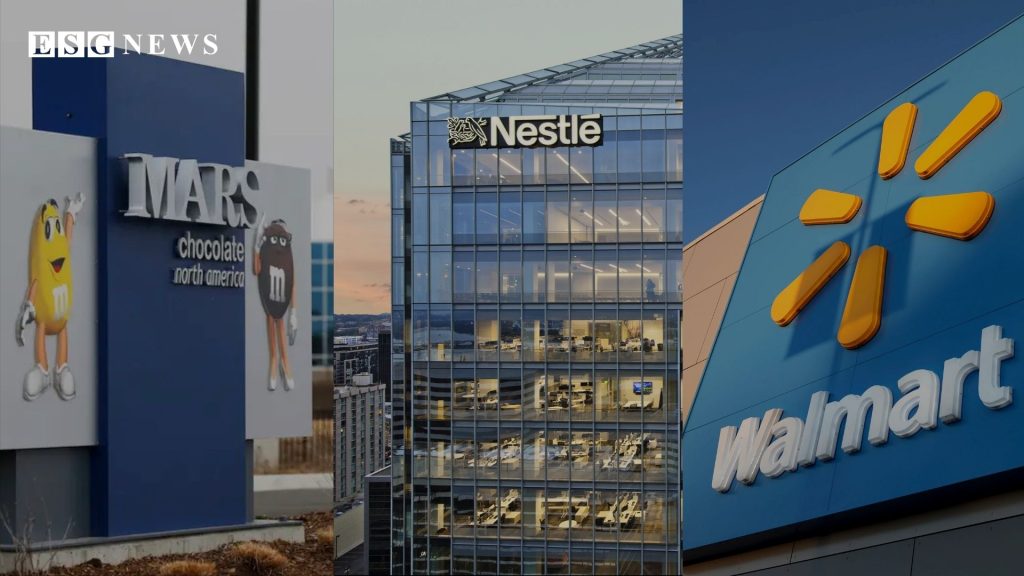Walmart, Mars, Mondelēz, Nestlé, and L’Oréal USA have exited the U.S. Plastics Pact ahead of updated 2030 sustainability goals.
Departures signal growing concern among corporates about the feasibility and ROI of current industry-led plastics initiatives.
Companies that left the Pact continue to participate in alternative industry coalitions with differing strategic priorities.
Several global consumer giants — including Walmart, Mondelēz, Mars, Nestlé, and L’Oréal USA — have quietly exited the U.S. Plastics Pact (USPP), a key industry initiative focused on sustainable plastic packaging. The move comes as the Pact prepares to transition from its 2025 targets to an updated 2030 roadmap, signaling a shifting strategy landscape in corporate sustainability commitments.
The exits mark a pivotal moment for the Pact, which launched in 2020 under the Ellen MacArthur Foundation to unite stakeholders across the plastics value chain. Participants were aligned on four packaging goals for 2025, including ambitious targets for recyclability, reuse, and post-consumer content.
As of 2023, only 50% of packaging from participating companies met the reusable, recyclable, or compostable threshold, and the average postconsumer recycled or biobased content reached just 11%. In response, the Pact recently released a 2030 roadmap, with implementation beginning January 1, 2026.
RELATED ARTICLE: U.S. Plastics Pact Drives Circular Economy with Postconsumer Recycled Content Toolkit
“The U.S. Plastics Pact’s website lists all of its current ‘activators’ as of today,” said Eric Downing, Director of Marketing and Communications. New members include Clysar and Tipa.
The USPP introduced a new category in 2024 called “activator accelerators”, with companies such as Aldi, Avery Dennison, Charter Next Generation, Church & Dwight, and Kraft Heinz committing through 2030. Memberships outside this tier continue to renew annually.
While the USPP has not commented on its membership fee structure, the departure of key nonprofits offers insight. Heidi Sanborn, Executive Director of the National Stewardship Action Council (NSAC), cited cost and limited ROI:
“We were not seeing benefit commensurate to the time invested. Additionally, USPP wanted NSAC to pay to participate, which had not been a condition previously.”
Corporate departures appear tied to broader strategic recalibrations. Mars, for instance, acknowledged that it was “unlikely to fully meet [its 2025 goals] by the end of 2025,” citing delays in packaging design and infrastructure changes.
Walmart similarly admitted challenges:
“While we have made significant progress towards our ambitious 2025 goals for recycled content, virgin plastic reduction, and packaging recyclability, we expect to fall short of achieving these goals by 2025,” the company stated in a February update.
Despite stepping away from the Pact, many of these companies remain active in parallel initiatives. Walmart co-founded the EPR Leadership Forum alongside many of the same firms — including Mondelēz, Mars, Nestlé, and L’Oréal USA — and plays a central role in the Circular Action Alliance, which leads Extended Producer Responsibility (EPR) implementation in multiple U.S. states.
Meanwhile, Walmart is also the subject of shareholder scrutiny. The National Legal and Policy Center, a conservative watchdog, recently submitted a shareholder proposal urging the company to reassess its plastics strategy. Walmart’s annual meeting is set for June 5.
Globally, the Ellen MacArthur Foundation reported in 2024 that various plastics pacts have helped increase recycled content in packaging by 44% and eliminate 360,000 tons of problematic plastics — underscoring the potential impact of such initiatives when fully supported.
With 2030 on the horizon, the challenge now lies in whether remaining Pact participants — and newly emerging coalitions — can maintain momentum and scale solutions in an increasingly complex regulatory and reputational environment.
Follow ESG News on LinkedIn

